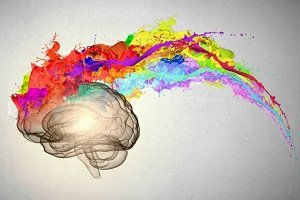Critical thinking is a conception utilized by educators and psychologists to reflect specific forms of training, reflection, and analysis, which involve far more than simple memorization and recollection of the data. It is a complicated term that is employed to various forms of obtaining knowledge and the wide range of thought operations. In its usual understanding, critical thinking takes place in the education process, when learners investigate, evaluate, analyze or synthesize specific data with the application of creative intellection. The final purpose of these actions may be creating an argument, finding a solution, or attaining the conclusion. In the education process, critical thinking is a crucial tool in the current educational changes that envisage a greater focus on the specific set of skills.
 Nowadays it is commonly recognized that critical thinking is an essential part of the cultured individual mental activity. Thus, teaching this skill is one of the key objectives of the educators who work with teenagers and young people. At the same time, training process demands mutual efforts of both teachers and students. This paper will trace the main reasons why young individuals should be self-motivated in thinking critically and how that may help them in their studying and other activities.
Nowadays it is commonly recognized that critical thinking is an essential part of the cultured individual mental activity. Thus, teaching this skill is one of the key objectives of the educators who work with teenagers and young people. At the same time, training process demands mutual efforts of both teachers and students. This paper will trace the main reasons why young individuals should be self-motivated in thinking critically and how that may help them in their studying and other activities.
Firstly, the students who gain critical thinking demonstrate outstanding academic results. In the research called “Critical Thinking Development: A Stage Theory”, the authors Linda Elder and Richard Paul conclude that students who are advanced in analyzing and criticizing ideas and concepts are able to identify strong ties between different subjects and scientific areas. Moreover, they can turn theoretical knowledge into helpful and applicable skills in their daily activity while realizing content on the more profound and deep level.
Further, critical thinking promotes students to reflect independently and find solutions by themselves. Such individuals do not rely on educators for guidances and prescriptions, as well as do not limit their learning process within the framework of classroom time. Instead, they become more self-motivated and self-directed scholars, which can design their own learning approaches, evaluate strengths and weaknesses and thus, lead their education process.
Another important reason why critical thinking is helpful in any activity is that it promotes strong logic reasoning. Nowadays the essential criteria for academic success are the capacity to think not only creatively, but logically. Thus, students are frequently asked to make outlines for future assignments in order to provide them with a logical structure. In this context, critical thinking ensures them reasoning their ideas in a structured and convincing way.
There are four basic principles that characterize the process of critical thinking in education:
- Identify and challenge possible assumptions about a particular topic.
- Verify the accuracy of the factual and logical sequence of reasoning.
- Consider the context which represents the conclusion.
- The study of alternatives and validation of a consequences.
To come up with a conclusion, critical thinking is considered an essential part of students’ academic activity, as it makes them think creatively, independently, and logically. Correspondingly, these criteria can guarantee the high level of personal and professional development in any scientific area or career. At the same time, critical thinking skill is necessary and helpful for young individuals in their everyday activity, as it promotes solving issues and making reasonable and mature decisions.
This article has been written by WorldEssays.com writers.
